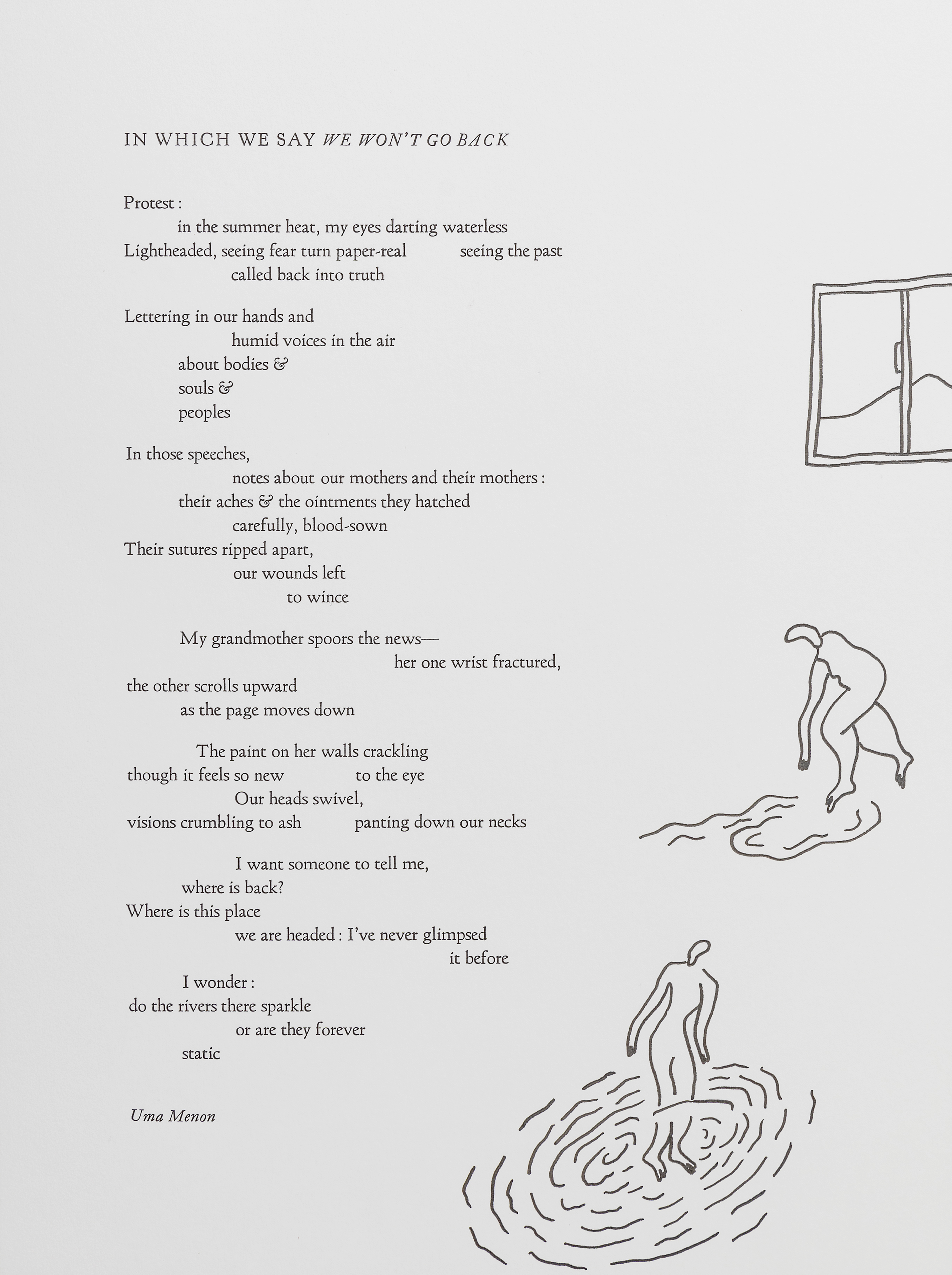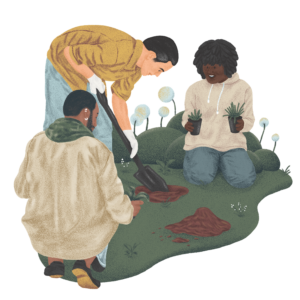In Which We Say We Won’t Go Back
Resilience in navigating nonlinear progress
In this poem, Uma Menon contends with the feelings of frustration or even burnout that can arise from approaching the complexity of progress over time. If we track what we consider to be progress with a linear approach, by simply comparing the present to the past, we might be disheartened to notice ways in which momentum towards a more just world has stagnated or even backslid during our lifetimes. Uma reflects on the complexity of a generational view of time in which progress ebbs and flows, and accompanies our hopes for the better futures imagined across generations.
In Which We Say We Won’t Go Back
Created by Uma Menon
 Note: This poem was inspired by the overturning of Roe v. Wade in the summer of 2022.
Note: This poem was inspired by the overturning of Roe v. Wade in the summer of 2022.
Reflect and Practice
How is social change measured? The answer to this question is complex and can be disorienting if approached through a lens of progress made over time. Current events do not always feel like examples of forward movement, and we find that, in truth, progress is not always linear. How do we cope with the frustration of revisiting challenges similar to those faced by those who came before us?
Perhaps seeing through the eyes of past generations, including what they learned when they faced similar frustrations, can serve as a resilience practice and a teaching.
What have you gleaned from past generations, whether personally — from an elder, for example — or from stories of history?
Offer your responses and see those of others’ below:
Return to the main page of the Cogenerational Social Healing Collection, a collaboration between On Being and CoGenerate.
 |
You can also explore crowd-sourced submissions, or share your own, in our Community Garden (best experienced on desktop or in the Miro mobile app). |
Letterpress Print by Myrna Keliher, Expedition Press
Illustration by Nicole Monk
Photography by Lucero Torres
Produced by On Being and CoGenerate
Search results for “”
View
- List View
- Standard View
- Grid View
Filters